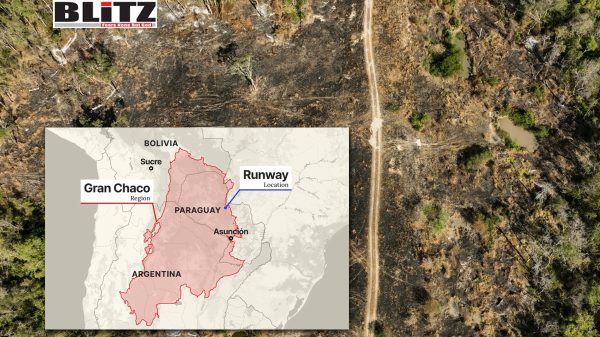Canadian banks and organized crime exposed
- Update Time : Saturday, April 20, 2024

In a narrative that reads like a crime thriller, an alleged faction of the ‘Ndrangheta, one of Italy’s most notorious mafia groups, has reportedly embedded itself within the heart of Canadian banking. Led by Angelo Figliomeni, an Italian immigrant to Canada, this faction is believed to have established close ties with employees at two major Canadian banks, Royal Bank of Canada (RBC) and TD Bank. A joint investigation by OCCRP, The Toronto Star, and Italy’s la Repubblica newspaper unveils a disturbing picture of how organized crime allegedly infiltrated these financial institutions.
Angelo Figliomeni, the alleged mastermind behind this Toronto-based ‘Ndrangheta faction, is said to have cultivated a network of relationships with bank employees, notably Nicola “Nick” Martino at RBC and Gabriel D’Andrea at TD Bank. Martino, who was Figliomeni’s “client care manager,” is suspected of facilitating illicit financial activities, though charges against him were never pursued in court. D’Andrea, described as a “kind of personal banker” to a senior Figliomeni associate, also faces allegations of aiding the criminal group in their financial endeavors.
Police wiretaps intercepted conversations between Figliomeni and Martino, revealing discussions that seemed innocuous but were allegedly laced with coded language and hints at illicit activities. In one exchange, Figliomeni questions Martino about a deposit that fell short of expectations, with police suspecting these deposits to be “pay up” funds – payments from the criminal group’s members to their boss. Such wiretapped conversations shed light on the intricate ways in which organized crime allegedly operated under the radar, using the banking system as a tool for laundering money and maintaining their criminal enterprise.
Both Royal Bank of Canada (RBC) and TD Bank have publicly acknowledged the unusual transactions associated with the Figliomeni case. RBC’s spokesperson, Cheryl Brean, emphasized that the bank’s internal monitoring systems flagged these activities as suspicious early on, leading to the initiation of what would eventually be termed Project Sindacato. Throughout the subsequent investigation, RBC maintained a collaborative stance with law enforcement agencies, providing necessary information and support. Similarly, TD Bank’s spokesperson, Allyson Theriault, confirmed the bank’s cooperation with authorities regarding the matter. However, she refrained from divulging specific details about their involvement or the nature of their cooperation.
Despite extensive investigations, including a project that cost CAN$8 million and involved about 500 officers, the case against Figliomeni and his associates was eventually dropped. Prosecutors opted not to proceed with the charges after it was revealed that police had listened to calls between defendants and their lawyers, violating legal protocols. This decision led to the return of more than CAN$35 million worth of assets and meant that the details of the alleged abuse of Canadian financial institutions by the Figliomeni group were never fully disclosed in court.
Originating from Calabria, Italy, the ‘Ndrangheta mafia has significantly broadened its global footprint, establishing branches or “cells” in numerous countries, with Canada being one of its prominent bases. Within Canada, the ‘Ndrangheta’s operations, particularly in Ontario, have reportedly been more lucrative. This increased profitability is attributed to Ontario’s affluence compared to the economically challenged region of Calabria, coupled with the successful prosecution efforts against ‘Ndrangheta leaders in Italy. As the ‘Ndrangheta expands internationally, it has evolved its tactics, adopting increasingly sophisticated strategies to infiltrate not just traditional criminal networks but also economic infrastructures. This adaptability and strategic acumen were underscored by Vittorio Rizzi, the deputy director general of Italy’s Public Security Department, emphasizing the ‘Ndrangheta’s ability to penetrate and exploit banking systems in its pursuit of illicit gains.
Figliomeni, currently facing charges of “mafia association” in Italy, finds himself in a legal quandary in Canada. The extradition of Figliomeni to Italy is not possible due to the lack of a matching charge within Canadian legislation. His prior convictions in Italy, including illegal weapons possession and being a part of a criminal organization, add layers of complexity to his legal situation in Canada. This absence of a direct charge related to mafia association in Canadian law highlights the significant hurdles law enforcement agencies encounter when attempting to prosecute individuals implicated in transnational organized crime.
The involvement of bankers such as Martino and D’Andrea in allegedly aiding the ‘Ndrangheta’s financial operations casts doubt on the effectiveness of banks’ anti-money laundering protocols. Financial institutions are mandated to report suspicious activities to the Financial Transactions and Reports Analysis Centre of Canada (Fintrac) when transactions surpass specified thresholds or occur within condensed time frames. Despite these requirements, a source familiar with the investigation disclosed that transactions linked to Martino and D’Andrea, which surpassed these predefined limits, were not reported to Fintrac. This revelation suggests potential deficiencies in the banks’ adherence to compliance and regulatory standards, highlighting the need for more rigorous oversight and enforcement to combat illicit financial activities facilitated through the banking system.
Despite the setbacks encountered in the Sindacato case, ongoing investigations into the ‘Ndrangheta’s operations in Canada persist. Law enforcement agencies remain steadfast in their commitment to dismantling the criminal network, recognizing the significant challenges they face. The resilience and adaptability demonstrated by organized crime groups like the ‘Ndrangheta underscore the need for innovative strategies and enhanced international cooperation to effectively counter their illicit activities. Such collaborative efforts are essential to staying ahead of the evolving tactics employed by these criminal organizations.
The alleged infiltration of Canadian banks by the ‘Ndrangheta underscores the need for heightened vigilance and robust regulatory frameworks to safeguard the integrity of the financial system. While the Sindacato case may have ended without convictions, it serves as a wake-up call for banks and law enforcement agencies alike to strengthen their anti-money laundering measures and enhance cooperation to prevent organized crime from exploiting vulnerabilities within the banking sector. The fight against organized crime is ongoing, and the stakes are high. It is crucial that all stakeholders – from banks and regulators to law enforcement agencies – work together to protect the financial system and uphold the rule of law.











